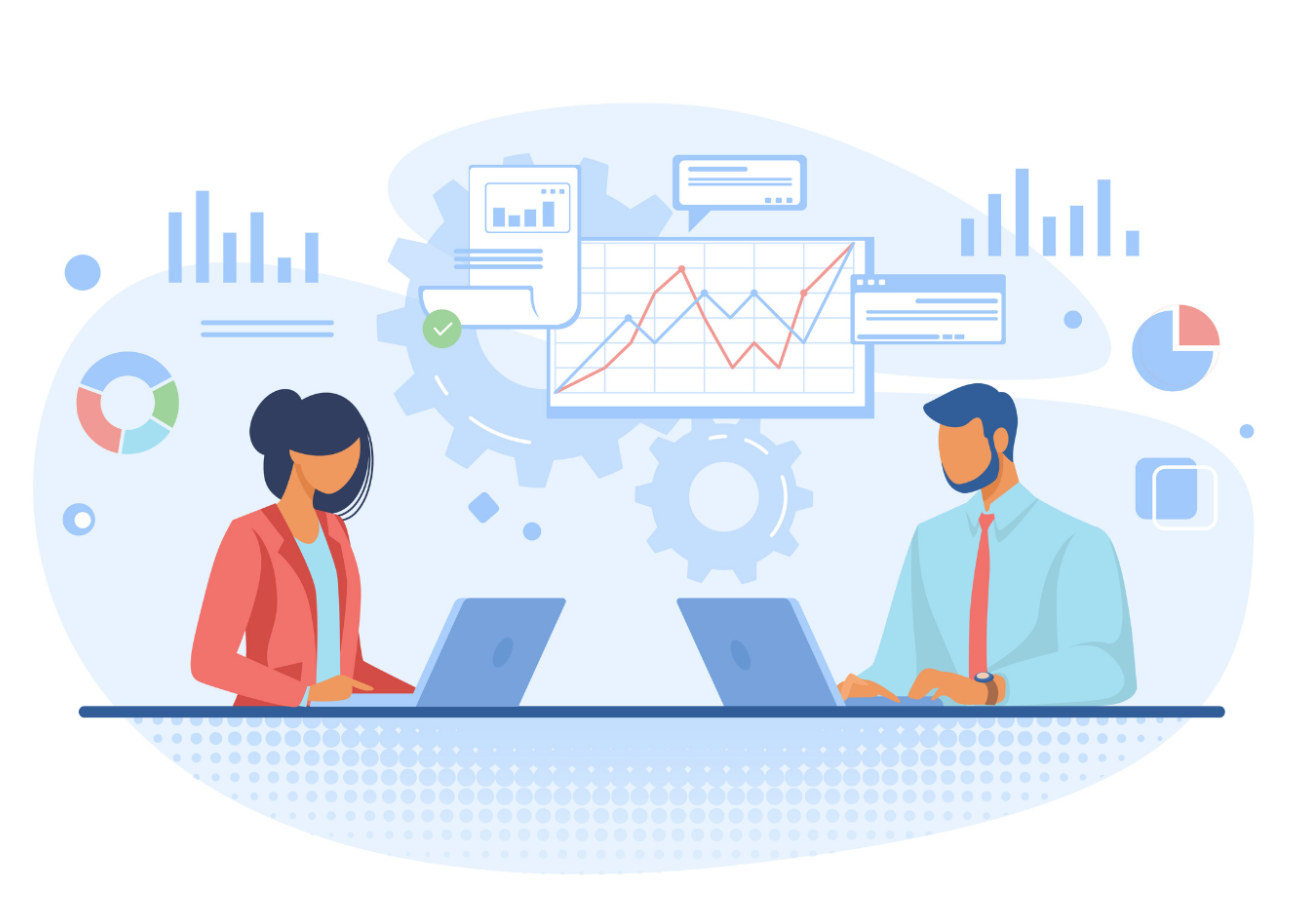Who better to talk to about Buyer Persona than the person who wrote the book, Buyer Personas!
I’ve read it twice, so I was super excited with this chance to talk with Adele.
What is it?
It’s an example of the real buyer, an aggregate or composite of who you want to influence through your marketing efforts.
It’s about being able to understand what your buyers are thinking and caring about. When we engage in sales and marketing activities, we have an idea of what would be important to the buyer, and not just us.
DR: I think there is a lot of confusion around what a true buyer persona is versus what’s called a buyer profile. Can you clarify the difference?
AR: The key difference is that the buyer profile describes the person, and may go into varying degrees of depth around any of the attributes of that person. This can include psychographics, goals, priorities, concerns, education, and income levels for B2C marketing.
This is all well and good, but if you think about the purpose of a buyer persona, which is to help us to understand how our sales and marketing interactions should be designed, we start to see that this is insufficient. We’re missing the key element, which is the part of the buyer persona, which tells us how, when, and why buyers start to engage with the idea that they should buy whatever it is that we’re marketing. I wrote the book because I became deeply concerned that we were getting all of these buyer profiles, but people weren’t going to get enough value from them. So, it’s not a bad idea to have a buyer profile, but it’s a little tiny piece of what we need to know. The more important thing we need to do is really get into the mindset of the buyer during the time that they’re making the buying decision we want to influence.
DR: So, to get a true buyer persona, is basically a buyer profile, plus how they came to their decision- the journey they took.
AR: We think that there are five insights you have to have in addition to the buyer profile. Those insights, allow us to peek inside the mindset, or the expectation, that buyers have as they are going through this very specific decision that we want to market to them.
The remarkable part of this is that as a career marketer myself, I’ve sat in countless meetings, sort of reverse engineering the benefit statement based on the value, or maybe even the unique value of what we do. At the end of the day, we finally have something that we’re going to talk about. The problem with that is there is a missing piece of data in those rooms. As we’re talking about all those benefits, capabilities, and even what’s unique about our product, there are still questions like:
Which of those benefits really factor into our buyer’s decision?
Does the buyer even care about what’s unique?
We’ve done studies where we’ve had to tell the company that we know they’re really good at what you do, but your buyers aren’t really thinking about that- it doesn’t really matter to them. So, if you’re talking about it all the time, they’re going to ignore you, because it isn’t important to them.
DR: I bet you’ve saved people lots of headaches. I can only imagine how much it’s helped companies to get that clarity.
AR: Sometimes I wonder whether we’re doing this for the buyers or the vendors! If you spend as many hours on the phone with buyers, as we do, talking about these decisions, you realize how frustrated they are with their inability to get useful information- from anything we’re doing.
As I look at the practices around content marketing, there’s plenty of data being published about how much content is wasted. It’s clear to me that it isn’t whether we’re doing banner ads, or spending more time on Youtube or Linkedin, or wherever- it’s what we’re saying in those places. If we’re not delivering useful information to buyers, and giving them confidence that they’re making a good buying decision, then they’re going to look elsewhere.
DR: Not to mention, the suppliers have wasted time and so much money.
AR: I always say that part of the reason I got good at this process, is because I got so tired of sitting in meetings and trying to make this stuff up. That’s why my book is dedicated to every marketer who questions the wisdom of making stuff up. I find that making stuff up is so much harder than listening to what the buyer really wants.
DR: If you have direction, everything is really 100 times easier, without a doubt. Now, buyer personas- more for B2B or B2C, or is there a difference?
AR: That’s an interesting question. My background is mainly in the B2B high-tech sector, but now we do work with B2C companies. We began to realize that it doesn’t matter if you’re selling to businesses or consumers. What matters is the amount of consideration your buyer gives to that decision. If your buyer is spending days, weeks, or months deciding to buy, and weighing the strengths and weaknesses, we can interview those buyers and have them tell us what factored into their decision.
Now you can’t approach someone in the grocery store and ask, “Hey, I noticed you have Dasani water in your basket, did you also see that Crystal Springs was on the shelf, what factored into your decision?” I can promise you they will either call security or ignore you!
On the other hand, if we have a CEO who is deciding where to take his family on a big vacation, we could conduct an interview about that and learn about everything that factored into that choice. Why he or she decided now was the time to go on vacation, how they decided where to go, how did they choose a hotel? At the same time, let’s say that CEO is involved in a big capital investment for his or her company, we can also interview them about that and learn what factored into that decision.
So, it’s not about b2b or b2c, it’s about the amount of time and investment the buyer makes in thinking through those decisions and gaining insight.
DR: I think you’ve painted a really clear picture of the value around buyer personas. What are the first steps one would need to go through to complete a buyer persona? Do you start with general information?
AR: The way to get these insights is to talk to real buyers who have made the decision. Ask them to tell you their story. It’s so interesting that when marketers think about doing this kind of work, they tend to either turn to their internal experts, or maybe their current customers, an online survey, or a script. All of those things are going to give you inadequate insight into something that could really change the game for you as a sales and marketing expert. They way to change that game is to step out of the box.
This is why I wrote the book- there is a lot to know to do this correctly. The short version is that we need to get people on the phone who represent our buyer persona in terms of the target market- the right size industry, the right job title, AND who have, in the last year have participated in the buying decision we are trying to influence. We can have them tell us their whole story- from beginning to the end.
One of my most frequently asked questions is, “Adele, can you send me the script for this?” That is the absolute wrong approach. If we have a script or jot down the questions we want to ask- we’ll only get the answers to those questions. We want to take the buyer back to the day when they realized they had a need. We want to prolong the answers.
DR: Would you start with your clients?
AR: I would worry about just interviewing your clients. If you do, make sure that they’ve just recently purchased from you. But don’t just go with the people who chose you, the most important information will come from those who didn’t choose you- people who chose your competitors.
DR: What if you’re just getting started? What if you don’t have any clients yet?
AR: This is a little bit trickier. You may want to get a professional involved to help you. You would want to get a recruiting partner. If you do a Google search for “qualitative research recruiters” you’ll find companies who specialize in setting up phone calls for you. Now you’ll have to be careful about giving your recruiter a set of criteria for those interviews that match your target buyer. We have to give them all the attributes with respect to demographics and job titles, but we have to screen with people who have made the buying decision recently. As vendors, we can get really caught up in our own language, and it’s interesting on its own to see what happens when we give recruiters this information. We can sometimes end up with people on the other end of the phone who have no idea what we’re talking about.
DR: So, it sounds like it’s a little trickier, but it can be done.
AR: Absolutely, we do it every day, but it just takes a little more research.
DR; I’d love to get your thoughts on big data. How big of a role does it really play in this, if at all?
AR: The process we’ve been talking about now, the how, what, and why that went into their buying decision- you’re not going to get that from big data. But there are things we can learn from data.
What our buyers are downloading from our site,
how they’re going through the journey with us,
But, there are a lot of holes in that data. So, while it’s insufficient, it’s ok as an add-on.
Where we’re seeing big data shine, and where it’s used the most effectively is in very low consideration buying decisions. For high consideration buying decisions, we need to build trust. It’s not enough to know what my marketing automation system tells me, I really need to know why they are doing it.
DR: Circling back to building these personas, about how many people do you need to talk to in order to gather enough insight?
AR: This is the best news I’m going to share today. In quantitative studies, we need big samples, but this is qualitative research. In these studies, you can work with relatively small sample sizes. If we have a homogenous group, then really, ten interviews is all we need to get the insight. There is such a diminishing point of return on the 11th through the 20th interview, we tell our clients it’s a waste of money. The only exception is if the client wants to know what’s different between one part of the market than another. In that case, you would need between 6-8 in each group.
DR: So, even as few as five or six is enough to get you on the right track?
AR: If you’re an in-house marketer, and you’re just trying to get to the point where you have some confidence that you’re on the right track,
Do at least 6 interviews
Do at least one interview a year for the rest of your life.
If you’re working with an agency, I would highly recommend ten.
DR: What do you do if you are an in-house marketer or an agency, and either your boss or the owner of the company is hesitant to let you talk to their clients?
AR: It’s a little different for each situation. For an in-house marketer, I would tell my boss that our salespeople are trained to go out and listen to prospects before they ever try to pitch our solution. As a matter of fact, we tell them to never go in with a pitch until they go through a discovery call. The sales people are collecting data and that allows them to formulate a compelling story for that prospect. Now, the salesperson is trying to persuade one buyer at a time, while I’m trying to persuade a marketplace of buyers. I never get a chance to listen to people before I talk. So, unless we’re going to tell salespeople to quit doing discovery calls, I don’t know how I would be expected to have effective marketing strategies if I don’t do discovery first.
If you’re an agency, it’s a little different, because you're at an arm’s length relationship. Often the client will tell you that they already know their buyer. I can then ask them to put me in touch with the buyer expert in their company- because I need insight into the buyer. I suggest interviewing that person- role playing as if they were a buyer. First, they’ll be able to experience the kind of interviews you’re going to conduct- which is often different than they thought. The other thing that happens is when that person starts to realize they don’t have all the information, and they start to be more open with you.
DR: I think we have covered a ton here today, and you’ve given such clarity and really shared about the importance of buyer persona.
AR: I think this is a really popular concept, I think the thing to do is decide how much energy you’re going to put into this. I will tell you this- every time we’ve done a study, we’ve uncovered things that were unsettling. We’ve found things that were completely different than what the companies thought their buyers were thinking. This isn’t a criticism- we know what our products do and don’t do- what we don’t know are perspectives. There is a mismatch 100% of the time. And uncovering these differences can give you an incredible competitive advantage.
Where can you learn more about Adele Revella?
Adele blogs are BuyerPersona.com. You can find her book on Amazon or Barnes and Noble. She loves to hear from people and tries to answer every email!
Adele Revella
Adele Revella is CEO of Buyer Persona Institute and author of Buyer Personas: How to Gain Insight into Your Customer’s Expectations, Align your Marketing Strategies, and Win More Business (Wiley 2015), recently named a Top 5 Business Book by Fortune Magazine. Adele’s unique perspective derives from decades of experience as a sales and marketing executive, trainer, researcher and entrepreneur.
WHAT WE OFFER
Magnificent Marketing is a full-service content marketing agency. We can help you with Content Creation, Content Distribution, Automated Emails, Email Marketing, Social Media Management, Website Creation, SEO, SEM, Contests, Web Development and Design, and more. Contact us for a free consultation.















